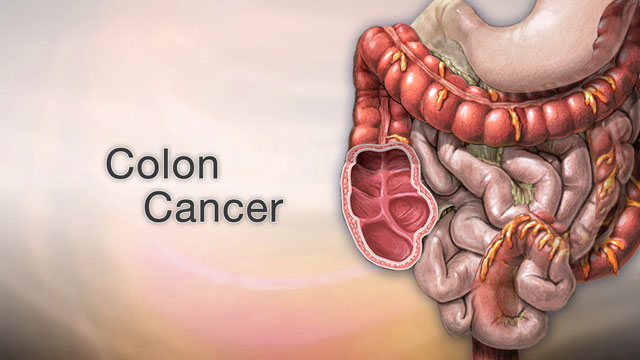Protect Yourself from the Common Cancer That Killed Kirstie Alley
Like many fans of Kirstie Alley, our primary care concierge doctors in Jupiter were sorry to learn of her death at age 71. We were even more troubled to learn of its cause: colon cancer because many of these deaths can be prevented with early screening.
The National Cancer Institute (NCI) estimates that 151,000 cases of colorectal cancer will be diagnosed this year. Colon cancer is the second-most deadly cancer in the U.S., behind only lung cancer, and is the third most common type of cancer.
Alley’s family reported that her cancer was “only recently discovered.” While we don’t know details beyond her family’s brief statement, her longtime friend Taylor Dayne told The Daily Beast she hopes to raise awareness about how common colon cancer is. The singer, who went public this summer with her own colon cancer diagnosis, urged people to get regular screening tests.
“I say stay on top of your health, get your mammograms, get a colonoscopy at 40. I don’t think you have to wait until 50,” she said.
How Screening Helps
Colon cancer begins in the large intestine (i.e., the colon), the final part of the digestive tract. It typically affects older adults, although it can occur at any age. Award-winning actor Chadwick Boseman died of colon cancer in 2016 at age 43. Jay Monahan, husband of former “Today” show host Katie Couric, died of colon cancer in 1998 at age 42.
More recently, actors Ryan Reynolds and Rob McElhenney videotaped parts of their colonoscopies to raise public awareness of the disease. Doctors found both actors had polyps that were removed.
One 2017 study from the American Cancer Society (ACS) published in the journal JAMA showed that colon cancer deaths are not only rising among younger white people but that the cancers diagnosed in this population are more advanced and more deadly. Researchers found that new cases of colorectal rose more than two percent each year among those under 50.
The Mayo Clinic reports that colon cancer usually begins as small, noncancerous (i.e., benign) polyps (tiny bumps or mushroom-like stalks) that form in the lining of the colon. Over time, some of these polyps can become cancerous although they produce few if any, symptoms.
But with regular colonoscopies, these polyps can be found and removed before they become cancerous.
According to the American Cancer Society (ACS), treatment can depend on the cancer stage. For example, stage II colon cancer can grow through the wall of the colon, and patients may need surgery to remove part of the colon, which is what Dayne had done following a routine colonoscopy.
“I was prone to developing polyps, so I was more on top of it, but five months after my last colonoscopy I had another one done in July, and that’s when I found out,” she told The Daily Beast.
Symptoms and Risk Factors
Although there may be a few symptoms, they can often be mistaken for other conditions such as hemorrhoids or irritable bowel syndrome (IBS).
Some of the earliest symptoms may include rectal bleeding or changes in bowel movements such as diarrhea or constipation, or a feeling that your bowel doesn’t empty completely.
Other symptoms can include abdominal cramps, gas, or other pain, fatigue, anemia, decreased appetite, and weight loss.
Besides being over the age of 50, risk factors that may increase your risk of colon cancer include:
- a personal history of colorectal cancer or polyps
- inflammatory intestinal conditions such as ulcerative colitis or Crohn’s disease
- a family history of colon cancer
- a low-fiber/high-fat diet
- sedentary lifestyle
- diabetes or insulin resistance
- obesity
- smoking
- heavy use of alcohol
Screening Tests Matter
Because anyone can get colon cancer, doctors recommend screening tests every 10 years beginning at age 45, but those with increased risk should consider screening sooner.
“Unfortunately, colon cancer doesn’t have a lot of symptoms until it’s advanced, which is why screening is so important,” Paula Denoya, director of the Colorectal Surgery Residency Program at Stony Brook Medicine, told NBC News.
Meanwhile, Joel Levine, co-director of the Colon Cancer Prevention Program at UConn Health told NBC News that the rising rates of the disease among younger Americans show no signs of abating.
“There’s an expectation there will be 15 percent of [all] colorectal cancers in people under 50 not too long from now,” he said, which is why he strongly recommends early screening.
“One of the reasons I’m so fussy about not waiting for symptoms is because it leads to, ‘Well, I feel all right, everything’s OK.’ And by the time you have a symptom, the horse is a little bit out of the barn.”
ACS guidelines emphasize individual preference and choice in testing options.
These are basically broken into two categories: stool-based tests, which are recommended every one to three years, and visual exams, including colonoscopy, every five to ten years, depending on risk factors.
The ACS stresses that these screening tests must be repeated regularly to be effective and that any abnormal stool-based test result should be followed up with a colonoscopy, which it considers to be the gold standard in colorectal cancer screening.
And the best ways to avoid many types of cancer, according to the ACS, are to limit red and processed meats, consume a diet high in vegetables, fruits, and whole grains, avoid tobacco, maintain a healthy weight, get regular physical exercise, and limit alcohol consumption.

